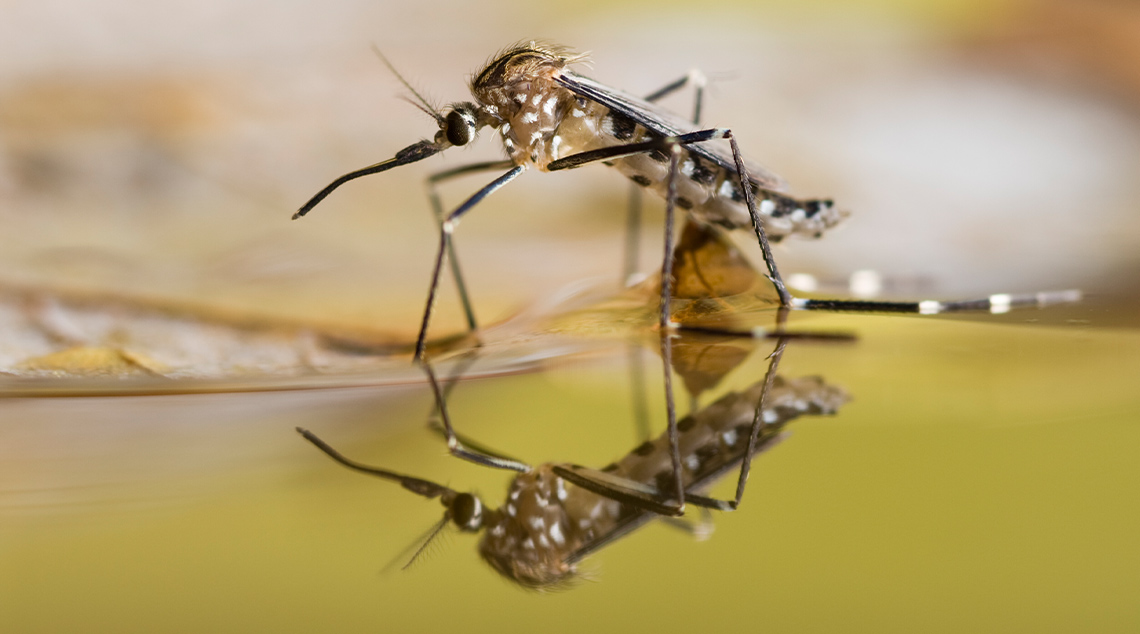Why Ross River virus is soaring and how to prevent it
A mozzie bite can leave you with more than just an itchy bump. Ross River virus is a growing threat in parts of Queensland, but we all need to know how to protect ourselves.
Mosquitoes are more than just a nuisance – these tiny insects can carry a range of potentially serious diseases, including Ross River virus.
Rising numbers of mozzies carrying the virus are being reported in flood-ravaged Queensland, with residents in multiple areas on high alert for an outbreak.
So what exactly is Ross River virus? And how can you protect yourself?
We asked the experts for the latest on what you need to know.
What is Ross River virus?
Dr Penny Rudd, a research fellow at Griffith University, says Ross River virus (RRV) is the most prevalent mosquito-borne disease in Australia, with about 5000 cases reported each year.
RRV is endemic to Australia, Papua New Guinea, parts of Indonesia and some South Pacific islands.
“Ross River virus spreads when a mosquito bites an infected animal or human and then this same mosquito bites a susceptible human – it cannot spread from human to human directly,” Dr Rudd, from the university’s Institute for Glycomics, explains.
“Since it was first identified in 1948, RRV has been isolated from more than 40 different mosquito species.”
What are the symptoms of Ross River virus?
RRV causes joint pain, stiffness and swelling, headaches, fever, lethargy, and a blotchy red rash that can last between seven to 10 days.
Dr Rudd says the symptoms are debilitating but not deadly; and, in some people, can last longer than a typical infection.
“Only 30 per cent of all people infected will develop symptoms… and most people will fully recover after two to six weeks,” she says.
“But for some, lethargy, muscle, and joint pain can last many months.”
About half will still be unwell at three months, 5 per cent at six months, and 2 per cent will suffer residual symptoms a year after first being infected.
What causes an outbreak of Ross River virus?
James Cook University tropical diseases expert Dr Richard Bradbury says warm weather and rainfall create the perfect conditions for an outbreak, with mosquito larvae breeding in water.
He says local councils catch mosquitoes and test for the virus, and have recently discovered an increase in infected insects after flooding in South East Queensland.
“That’s how we know we can expect to see a significant uptick in cases in the coming weeks from the Gold Coast up to Mackay,” Dr Bradbury, an Associate Professor at the school of Tropical Public Health and Medicine, says.
“It can take about seven to nine days for people to show symptoms after they are infected.
“Anyone can become infected, but it (RRV) is mostly prevalent in adults from the ages of 30 to 70.”
The virus can be present in most parts of Australia, particularly near bodies of water.
Can Ross River virus cause rheumatoid arthritis?
No. RRV is also known as epidemic polyarthritis, and while there are several overlapping features with rheumatoid arthritis, they are different ailments, Dr Rudd says.
Can you get Ross River virus twice?
Dr Rudd says antibodies produced after an RRV infection should lead to lifelong protection.
“However, those antibodies will not protect you from getting other alphaviral diseases like Barmah Forest virus,” she says.
How can you treat Ross River virus?
In the absence of a vaccine or treatment, Dr Bradbury says sufferers are advised to rest and take pain relief medication such as paracetamol, ibuprofen and aspirin, as directed by their doctor.
Staying hydrated is also important.
Can you avoid getting Ross River virus?
The best way to avoid getting the virus is not to get bitten by mosquitoes.
Here’s how to protect yourself:
- Try to avoid being outdoors if there are lots of mosquitoes around.
- Cover up exposed skin by wearing loose-fitting clothing when outside – light-coloured clothing is less likely to attract mosquitoes.
- Use mosquito coils, and apply insect repellents on all areas of exposed skin.
- Tip out water containers around the house and in the garden, such as bird baths and plant trays, and clean gutters to stop water from pooling.
More on mosquito and other bug bites:
- Why mozzies bite (and what you can do about it)
- Is Buruli ulcer the reason your skin won’t heal?
- Don’t let the bed bugs bite! How to stop an outbreak
- Summer sting: How to treat insect bites
Written by Elissa Doherty.





